14 High-Yield Dividend Stocks to Buy for the 4% Rule
Financial planners often recommend the 4% rule as a guideline for determining the annual amount that a retiree can withdraw from portfolios without depleting their nest egg over a 30-year retirement.

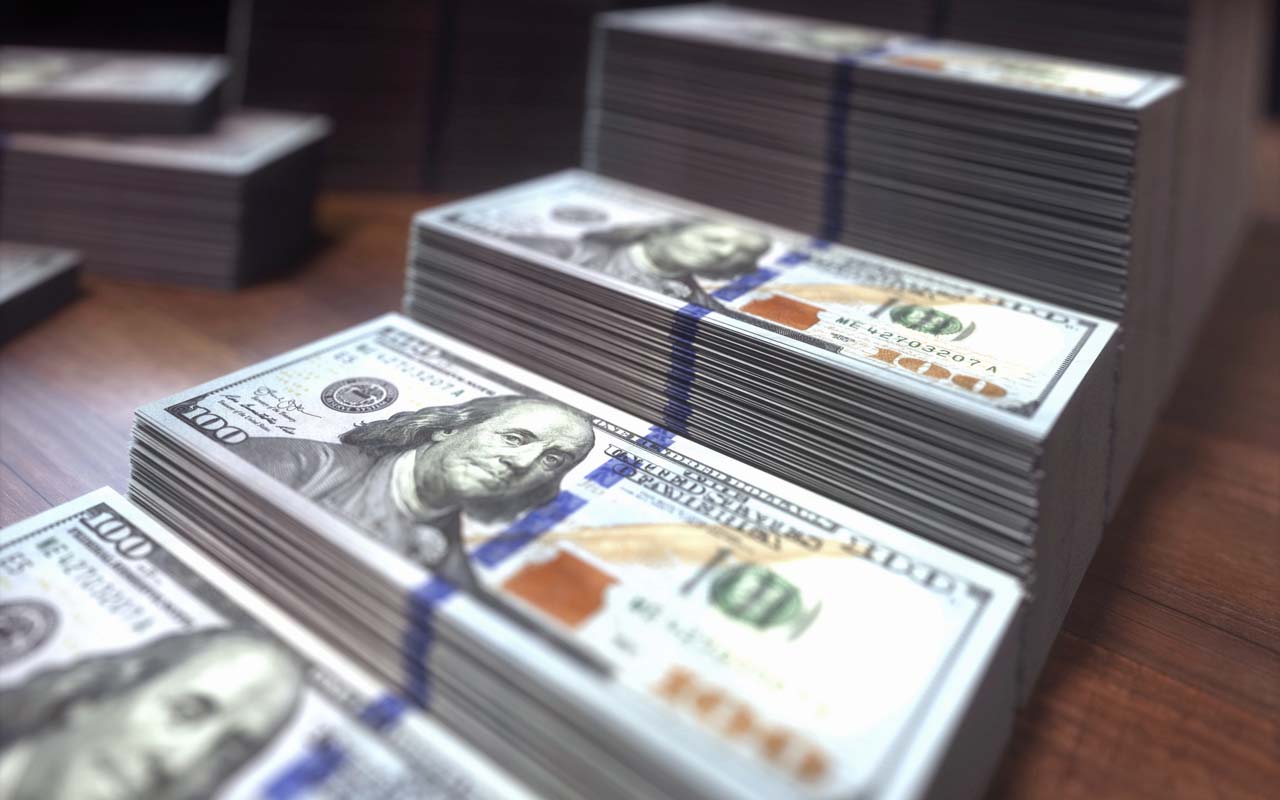
Profit and prosper with the best of Kiplinger's advice on investing, taxes, retirement, personal finance and much more. Delivered daily. Enter your email in the box and click Sign Me Up.
You are now subscribed
Your newsletter sign-up was successful
Want to add more newsletters?

Delivered daily
Kiplinger Today
Profit and prosper with the best of Kiplinger's advice on investing, taxes, retirement, personal finance and much more delivered daily. Smart money moves start here.

Sent five days a week
Kiplinger A Step Ahead
Get practical help to make better financial decisions in your everyday life, from spending to savings on top deals.

Delivered daily
Kiplinger Closing Bell
Get today's biggest financial and investing headlines delivered to your inbox every day the U.S. stock market is open.

Sent twice a week
Kiplinger Adviser Intel
Financial pros across the country share best practices and fresh tactics to preserve and grow your wealth.

Delivered weekly
Kiplinger Tax Tips
Trim your federal and state tax bills with practical tax-planning and tax-cutting strategies.

Sent twice a week
Kiplinger Retirement Tips
Your twice-a-week guide to planning and enjoying a financially secure and richly rewarding retirement

Sent bimonthly.
Kiplinger Adviser Angle
Insights for advisers, wealth managers and other financial professionals.

Sent twice a week
Kiplinger Investing Weekly
Your twice-a-week roundup of promising stocks, funds, companies and industries you should consider, ones you should avoid, and why.

Sent weekly for six weeks
Kiplinger Invest for Retirement
Your step-by-step six-part series on how to invest for retirement, from devising a successful strategy to exactly which investments to choose.
Financial planners often recommend the 4% rule as a guideline for determining the annual amount that a retiree can withdraw from portfolios without depleting their nest egg over a 30-year retirement. And high-yield dividend stocks are a critical component of executing this strategy.
Financial adviser William Bengen devised the 4% rule after evaluating stock and bond data across several decades and discovering that a pattern of 4% yearly withdrawals provided reasonable security without bleeding a portfolio dry for at least 30 years, even through occasional market downturns.
The concept is simple: Draw down 4% of the portfolio value in the first year of retirement, then a matching amount (adjusted for inflation) in each subsequent year. Bengen himself later updated the number from 4% to 4.5%.
It's a good starting point for planning a comfortable retirement, but investors must consider a couple factors when applying it. For instance, the 4% rule doesn't account for big one-time purchases that might push your spending growth above the rate of inflation. It also assumes future market performance will resemble past results.
That said, income from your investments can count toward that amount, so if you draw a high (and preferably growing) yield from your portfolio, it means you'll only need minimal price appreciation to remain on track.
Here are 14 high-yield dividend stocks to buy that yield 4% or more. These picks have other qualities that are beneficial to retirees, too – some feature much lower volatility than the broader market, and many are consistent dividend raisers whose payouts may keep up with or even outrun inflation.
Data is as of Nov. 12. Stocks listed by yield. Dividend yields are calculated by annualizing the most recent payout and dividing by the share price.
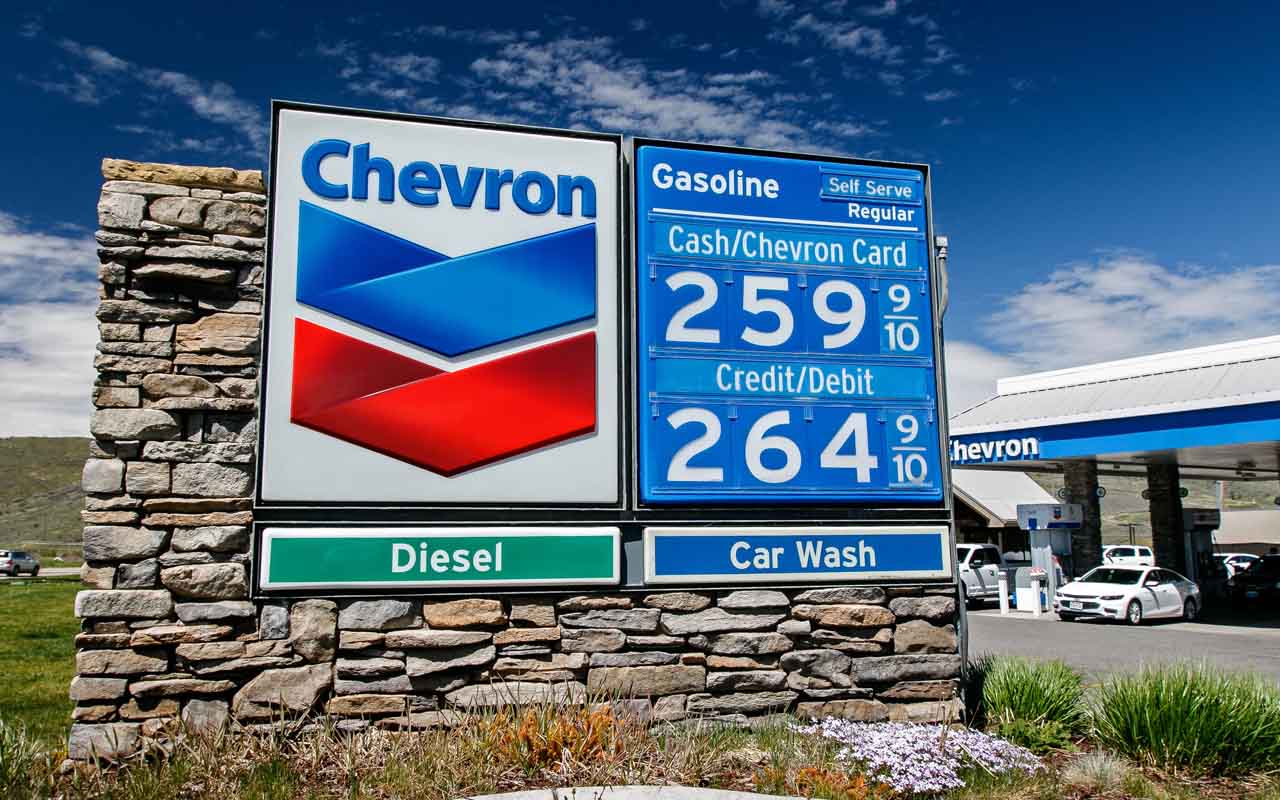
Chevron
- Market value: $228.7 billion
- Dividend yield: 4.0%
- Chevron (CVX, $120.96) is one of the world's largest integrated energy majors, and it boasts a significant presence in the Permian Basin – America's largest oil-producing basin. Chevron's Permian Basin oil-equivalent production grew 35% year-over-year, to 455,000 barrels per day; it's targeting production of 650,000 barrels per day by 2020.
In addition to solid Permian production gains, Chevron benefitted from the ramp-up of its offshore Gulf of Mexico wells and prolific LNG (liquid natural gas) projects in Australia.
The company nonetheless suffered a considerable pullback in third-quarter profits, from $4 billion a year ago to $2.6 billion in 2019. But the company was facing difficult comparisons to 2018's robust Q3, as well as a $430 million tax charge.
Chevron generates plenty of cash to support its ample dividend, though. It produced $4.2 billion in levered free cash flow (FCF), which was almost twice what it needed to cover its payout. Over the past 12 months, it has generated $13.5 billion in FCF versus $8.9 billion in dividends paid. That's a stark improvement from where CVX was just a few years ago, when an energy-price plunge in 2014-15 caused the company to burn cash.
Chevron's dividend keeps growing, too. A 6% upgrade in the payout this January marked the company's 32nd consecutive year of dividend growth. At just a hair under 4%, CVX is among the highest-yielding dividend stocks in the Dividend Aristocrats.
BMO Capital analyst Daniel Boyd has an Outperform rating (equivalent of Buy) on CVX stock. He admires the company's strong Permian Basin presence and sustained 5%-plus dividend growth. Goldman Sachs analyst Neil Mehta added Chevron to the firm's 2019 Americas Conviction List after the company's merger with Anadarko Petroleum was terminated. He likes Chevron's free cash flow, strong capital spending program and discipline shown by walking away from the Anadarko deal.

Southern Company
- Market value: $63.6 billion
- Dividend yield: 4.1%
- Southern Company (SO, $60.69) is a diversified energy provider primarily serving customers in the southern states. Its three utility operations provide electricity to approximately 9 million customers across Georgia, Alabama and Mississippi. The company also distributes natural gas to customers in Georgia, Illinois, Virginia and Tennessee, operates a wholesale energy subsidiary (Southern Power) and provides energy technologies to utilities and industrial customers through its PowerSecure segment.
Southern controls more than 44,000 megawatts of generating capacity and has the ability to supply power in all 50 states. The company generates 47% of its power from natural gas, 23% from coal, 16% from nuclear and 14% from renewables.
Unlike most other utility stocks, Southern is investing in nuclear power; the company has the country's only new nuclear units under construction. Its Vogtle 3 and 4 nuclear units will eventually provide power to approximately 500,000 homes and businesses across Georgia. The project was roughly 80% completed as of the end of August.
The company forecasts full year 2019 earnings per share to be lower than last year at the midpoint of guidance. Regulated utility operations are expected to contribute approximately 90% of EPS, while energy infrastructure projects will account for the remainder.
Southern also closed a $1.5 billion equity offering in August and plans to use the proceeds to pay down debt and fund investments in its subsidiaries.
The utility stock has raised its payout annually for 18 years without interruption, including a 3.3% uptick in April. And despite a brisk 43% run year-to-date, SO shares still yield more than 4%. Despite that rally, Southern still trades at just 19 times earnings, which is on its high end historically but isn't nearly as frothy as the utility sector's current 25 P/E.
Analysts are a bit mixed at the moment. Of the seven analysts sounding off on SO over the past three months, just one has rated it a Buy, versus four Holds and two Sells – but several of those were just reiterations of old ratings that included higher price targets than before.
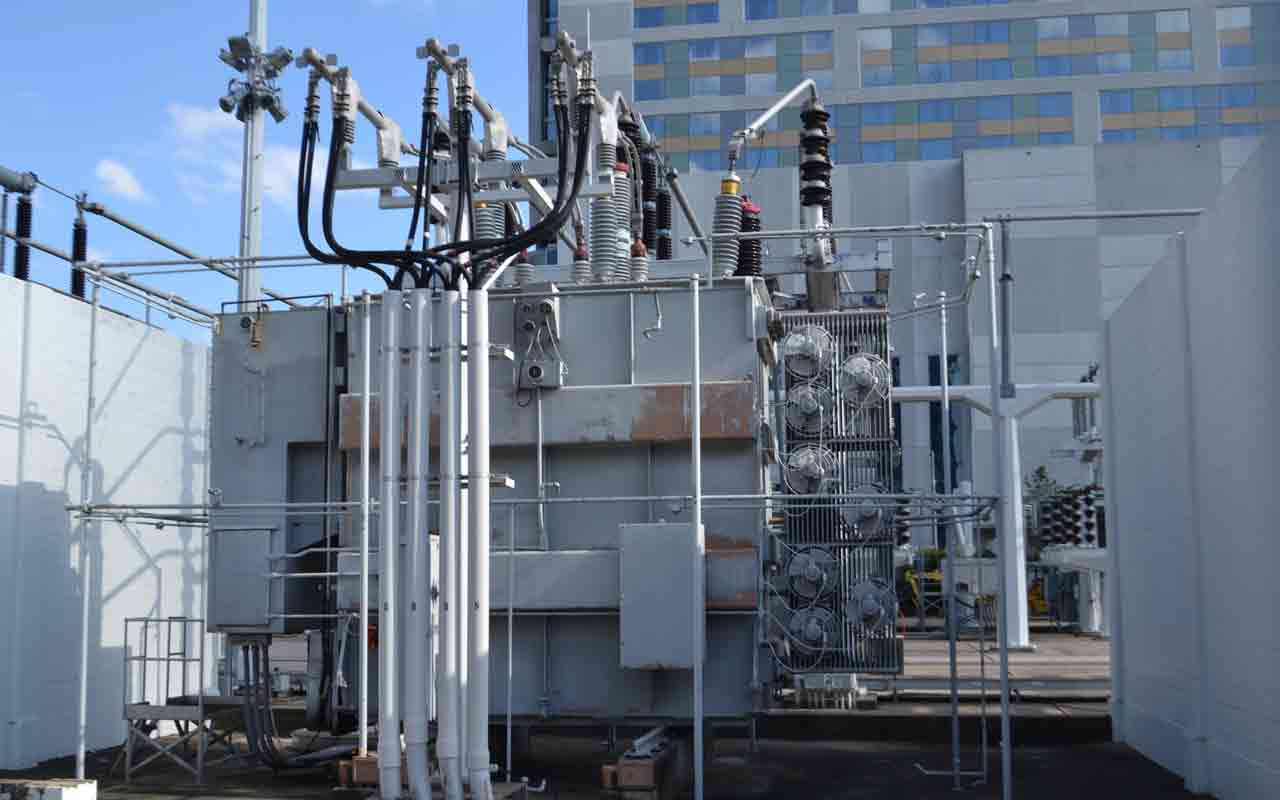
Centerpoint Energy
- Market value: $14.0 billion
- Dividend yield: 4.1%
- Centerpoint Energy (CNP, $27.94) owns regulated utility businesses in eight states and has an energy footprint in nearly 40 states. The company supplies electricity and natural gas to more than 7 million customers across Arkansas, Indiana, Louisiana, Minnesota, Mississippi, Ohio, Oklahoma and Texas. In addition to utility operations, Centerpoint Energy holds a 53.8% stake in Enable Midstream Partners LP (ENBL), which owns natural gas and crude oil infrastructure assets.
Centerpoint Energy expanded the scale of its utility operations last year when it spent $6 billion to acquire Vectren, a natural gas supplier to more than 1.0 million customers across Indiana and Ohio. Vectren also has non-utility operations consisting of pipeline repair and replacement services and renewable energy project development. Although these non-utility operations contribute only 25% of Centerpoint Energy's earnings, the steady cash generated from these businesses provides CNP with ample capital for funding utility-segment growth.
Again, Centerpoint is a utility, so don't expect striking growth. The company is targeting modest 5% to 7% annual increases in adjusted EPS through 2023, which should fund future dividend improvements. That's what the sector is good for: producing high-yield dividend stocks with routinely growing payouts. CNP has hiked its dividend for 14 consecutive years, with yearly rate bumps averaging about 4% over the past half-decade.
Goldman Sachs analyst Insoo Kim put CNP on the firm's 2019 Americas Conviction List earlier this year. Kim thinks the company is in the early stages of a turnaround and can produce nearly 7% annual EPS growth through 2021, fueled by the strength of its expanding regulated utility business.
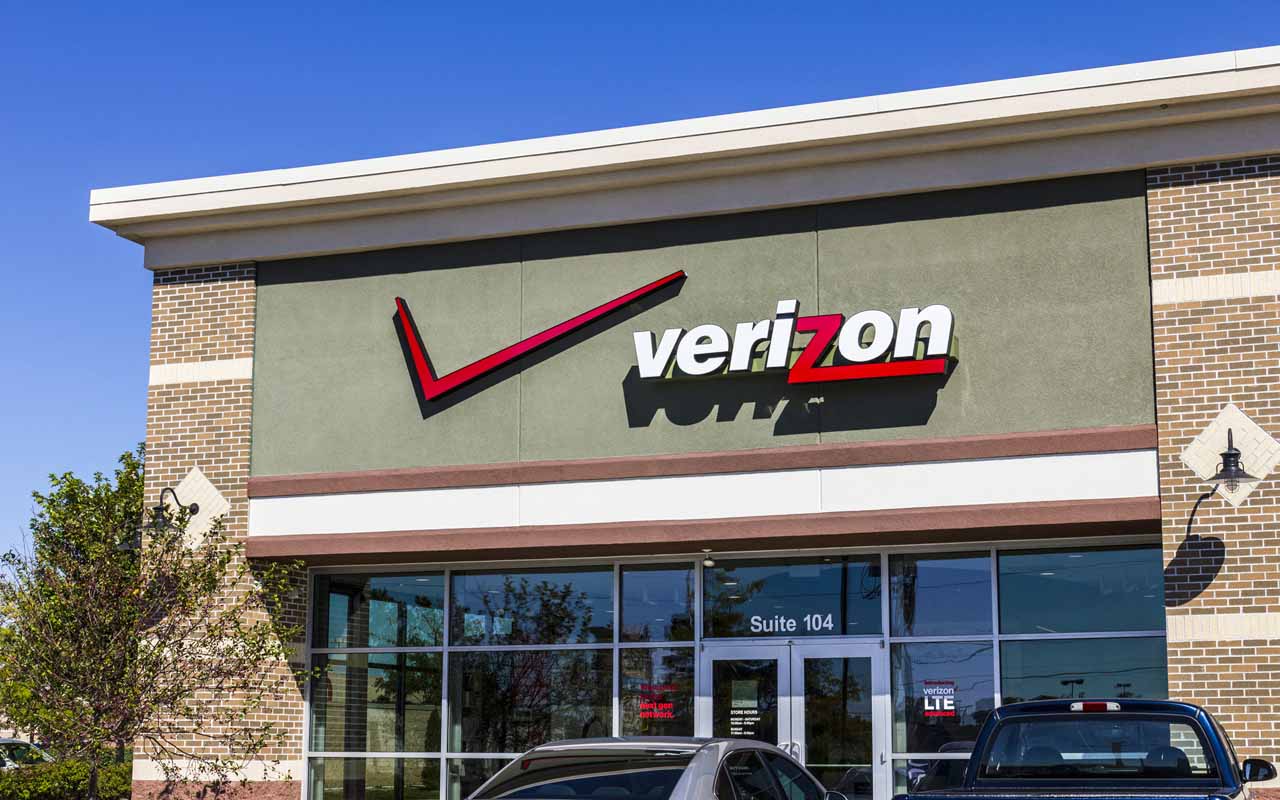
Verizon Communications
- Market value: $245.3 billion
- Dividend yield: 4.2%
- Verizon Communications (VZ, $59.32) already operates America's largest 4G wireless network and is aggressively rolling out 5G in 30 U.S. cities this year. The company plans to re-energize revenue growth by creating a high-quality 5G network that can command premium pricing. Subscribers will be able to boost video download speeds tenfold on its 5G network, and businesses should be able to deploy new wireless applications in manufacturing automation, cloud retrieval and storage, autonomous vehicles, drones and healthcare.
Verizon's earnings improved 26% in 2018, reflecting the benefits of tax cuts and accounting changes. However, 2019 forecasts are closer to what you can expect out of a company operating in the oversaturated U.S. telecom market. Analysts expect just 0.6% revenue growth in 2019, and 2.5% profit growth. 2020 forecasts aren't much better. In fact, Verizon doesn't anticipate any meaningful revenue contribution from 5G services until 2021.
The flip side? Cellular and data service is practically a utility at this point, which helps Verizon produce gushers of cash that it uses to fund a large, modestly growing dividend. VZ's payout has expanded by a little more than 2% annually.
The pending merger between T-Mobile (TMUS) and Sprint (S) might threaten Verizon's margins – so worries Citi analyst Michael Rollins, who recently downgraded his VZ stock rating to Neutral (equivalent of Hold). But Oppenheimer's Tim Horan thinks Verizon eventually win out because of its early lead in 5G – among the reasons he upgraded the stock to Outperform in August.

Ryder System
- Market value: $2.8 billion
- Dividend yield: 4.2%
- Ryder System (R, $53.45) is a leader in transportation logistics. It provides truck rentals and leasing, used vehicles for sale and last-mile delivery services nationwide. The company owns a fleet of more than 272,000 vehicles, has over 800 locations across North America for vehicle rentals and maintenance and controls more than 55 million square feet of warehouse space used by its freight logistics business.
Most important for investors worried about dividend stability: 86% of revenues come from predictable long-term leasing contracts. And contractual revenue growth is expected to grow between 5% and 11% across Ryder's three divisions.
Ryder's core business, fleet leasing and maintenance, accounts for 60% of annual revenues. The company is also diversifying into additional business areas such as vehicle financing and support, managing outside carriers and warehousing and last mile logistics.
Ryder is focused on reducing headwinds from lower used-vehicle prices and rising maintenance costs. The company is boosting revenues with acquisitions and new services, trimming the average age of its truck fleet and cutting $75 million from maintenance costs. These initiatives helped 2018 EPS jump by 32% and nearly doubled the company's free cash flow.
While the company still is growing – its revenues through the first nine months of 2019 have improved 8% year-over-year to $6.6 billion – lousy market conditions for power vehicles have put a dent into earnings. Ryder has been forced to downgrade its full-year outlook in each of the past two quarters. While the company had expected $6.05 to $6.35 per share as of Q1, it now expects just 20 to 30 cents per share for 2019.
As ugly as all this sounds, investors have taken it in stride – Ryder's stock has actually improved by 15% so far this year. And the silver lining? "Although these changes in estimates significantly affect earnings in 2019 and 2020 — with the largest negative effect reflected in the third quarter of 2019 — we expect this impact to decline each quarter going forward," CEO Robert Sanchez said in the third-quarter release. Translation: This too shall pass.
Ryder also prioritizes its dividend. This high-yield dividend stock has paid out investors for 43 consecutive years, and improved the cash distribution for 15 consecutive years. That includes a 4% upgrade announced in July, despite its issues.

Duke Energy
- Market value: $63.9 billion
- Dividend yield: 4.3%
- Duke Energy (DUK, $87.59) operates electric and gas utilities across the Southeast and Midwest. The company's regulated electric utilities have 51,000 megawatts of electric generating capacity. Non-regulated wind and solar assets contribute another 3,000 megawatts of capacity. Duke provides electricity to 7.7 million retail customers across six states and distributes natural gas to more than 1.5 million consumers across four states.
Duke's adjusted earnings per share have climbed by 8% through the first nine months of 2019, fueled by rate increases and unusually hot weather. That's actually exceeding its own internal expectations for 4% to 6% sustainable annual EPS growth through 2023.
Duke's utility operations, which contribute 85% of earnings, are benefiting from a continued population migration to the Southeast. The company recently invested $1.1 billion in its Florida electric grid, which Duke will begin recovering through rate increases this year. The company also is spending $500 million annually to upgrade its grid in the Midwest and construct electric vehicle charging stations in the Carolinas.
In its gas utility business (9% of EPS), construction is scheduled to resume on the 600-mile Atlantic Coast Pipeline, which is expected to commence full service in 2021. Duke is a partner on the Atlantic Coast Pipeline.
Duke Energy is one of the longest-paying high-yield dividend stocks on the market, with a regular payout that has endured for more than 90 years. Its dividend growth streak is much fresher, however at just 12 years. The cash distribution accounts for a high 80% of earnings, but that's typical for a utility. So is the slow, 3.5% annual growth rate on DUK's quarterly dole.

Prudential Financial
- Market value: $37.5 billion
- Dividend yield: 4.3%
- Prudential Financial (PRU, $93.31) offers life insurance, annuities and a variety of retirement-related products to customers worldwide. The company manages more than $1 trillion in assets and has offices in the U.S., Asia, Europe and Latin America.
Prudential is adding direct-to-consumer sales channels to its mix this year by acquiring Assurance IQ for $2.35 billion. Assurance IQ has technology that allows customers to shop for customized life, health, Medicare and auto insurance via the Internet and make the purchase online or through an agent. Tapping direct-to-consumer channels significantly expands Prudential's addressable market. The company expects the acquisition to be accretive to profits starting in 2020 and create $50 million to $100 million in annual cost savings.
PRU shares might struggle in the short-term. Citi analyst Suneet Kamath downgraded his PRU rating to Neutral (equivalent of Hold) in August. He wrote that the company's high-quality business mix can deliver superior EPS growth over the long-term, but that he believes near-term growth will be muted due to lower interest rates and recession uncertainties. Indeed, the company's Q3 report delivered in early November saw modest profit growth of 2% year-over-year, versus the company's average 8% compound annual growth over the past half-decade, sparking a pair of analyst downgrades.
That said, Prudential did enjoy 11% growth in the account values of its American retirement institutional investment products, to a record $218 billion. It also recorded strong sales growth in its U.S. Annuities and Life offerings, as well as international Life Planner.
PRU bought back $1 billion of its own shares in the third quarter, too, doubling its year-to-date total to $2 billion. It also spent more than $1.2 billion on its dividend, which has improved every year for a decade – and at a brisk clip of 11.5% annually over the past five years. That has helped secure its place among the higher-yielding dividend stocks in the financial sector.
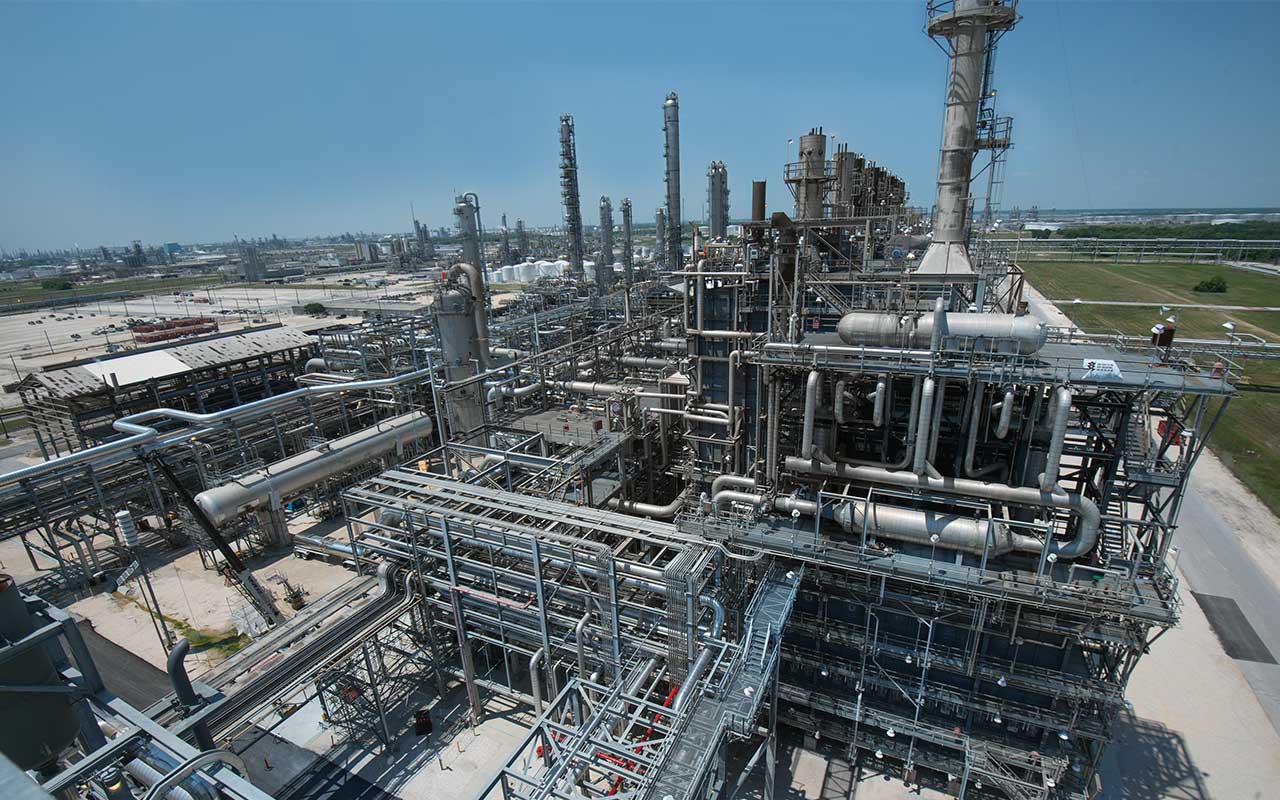
LyondellBasell Industries
- Market value: $32.2 billion
- Dividend yield: 4.4%
- LyondellBasell (LYB, $96.58) is one of the world's largest plastics, chemicals and refining companies. It is the leading producer of polymer compounds used to make plastics, and the largest licensor of polyolefin technologies to chemical and plastics companies. The company has manufacturing operations in 24 countries and records sales in more than 100.
LyondellBassell became the world's largest plastics compounder by acquiring A. Schulman for $2.3 billion in 2018. It's currently building the world's largest PO/TBA plant – propylene oxide (PO) is used to make bedding, while tertiary butyl alcohol (TBA) can be used to produce high-octane fuel. In addition, the company is building the first world-class high-density polyethylene (HDPE) plant in the U.S. and recently began operating a joint venture that produces recycled HDPE and polypropylene (PP).
The company walked away from a proposed takeover of Brazilian plastics and petrochemical producer Braskem (BAK) in July, opting instead to repurchase 35.1 million (roughly 9%) of its own shares. More recently, LyondellBassell entered into an agreement to construct a large petrochemical complex in China, committing to invest $12 billion across the next decade in various petrochemical projects.
Wall Street analysts have downgraded most chemical stocks, including LYB, due to expectations of a cyclical downturn in global chemical demand. That said, several analysts upgraded their price targets on LYB following a strong third-quarter report. The dividend stock has been enjoying insider buying, too. CEO Bhavesh Patel purchased $500,000 of shares in August, and beneficial owner AI Investments acquired nearly $50 million of LYB stock in early September.
LyondellBassell raised its dividend 5% during the June quarter, marking its 11th dividend increase in eight years. Dividends have grown five years in a row, at an 8% compounded annual rate.
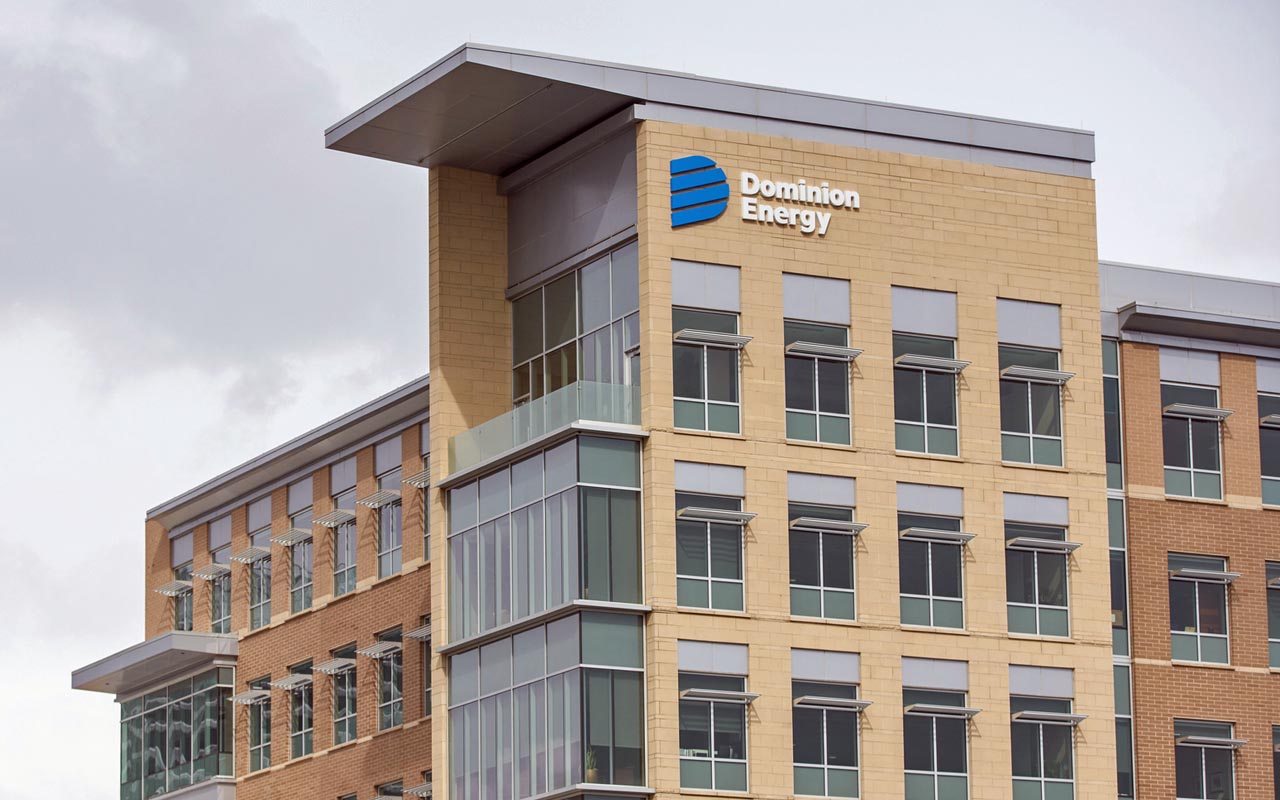
Dominion Energy
- Market value: $65.6 billion
- Dividend yield: 4.6%
Dominion Energy (D, $79.72) is one of the nation’s largest suppliers of electricity and natural gas to consumers. The company owns $100 billion of assets and serves nearly 7.5 million customers across 18 states. Dominion operates regulated utilities in three states (Virginia, North Carolina and Utah) that are considered among the top five states for business growth in 2019.
The company shifted its business mix toward more regulated and fee-based services by paying $14.6 billion to acquire regional utility Scana Group last year. Scana supplies electricity to approximately 1.6 million customers across the Carolinas, but had been struggling financially due to a recently failed nuclear project. The merger left Dominion with $36.6 billion of long-term debt.
Dominion’s operations in 2019 should end up looking pretty typical for a utility. Based on the midpoint of its fourth-quarter guidance, the company likely will post operating profits of $4.22 per share, up a little more than 4% from the previous year.
Dominion has raised its payout for 16 years in a row, at an average annual compounded clip of more than 7% over the past half-decade. That said, given capital spending (budgeted at $26 billion over the next five years), debt repayment and managing its dividend payout ratio, which has climbed to nearly 90%, future dividend expansion might be slower. Analysts expect the company’s dividend growth rate to pull back to 2.5% in 2020 and remain there for several years.
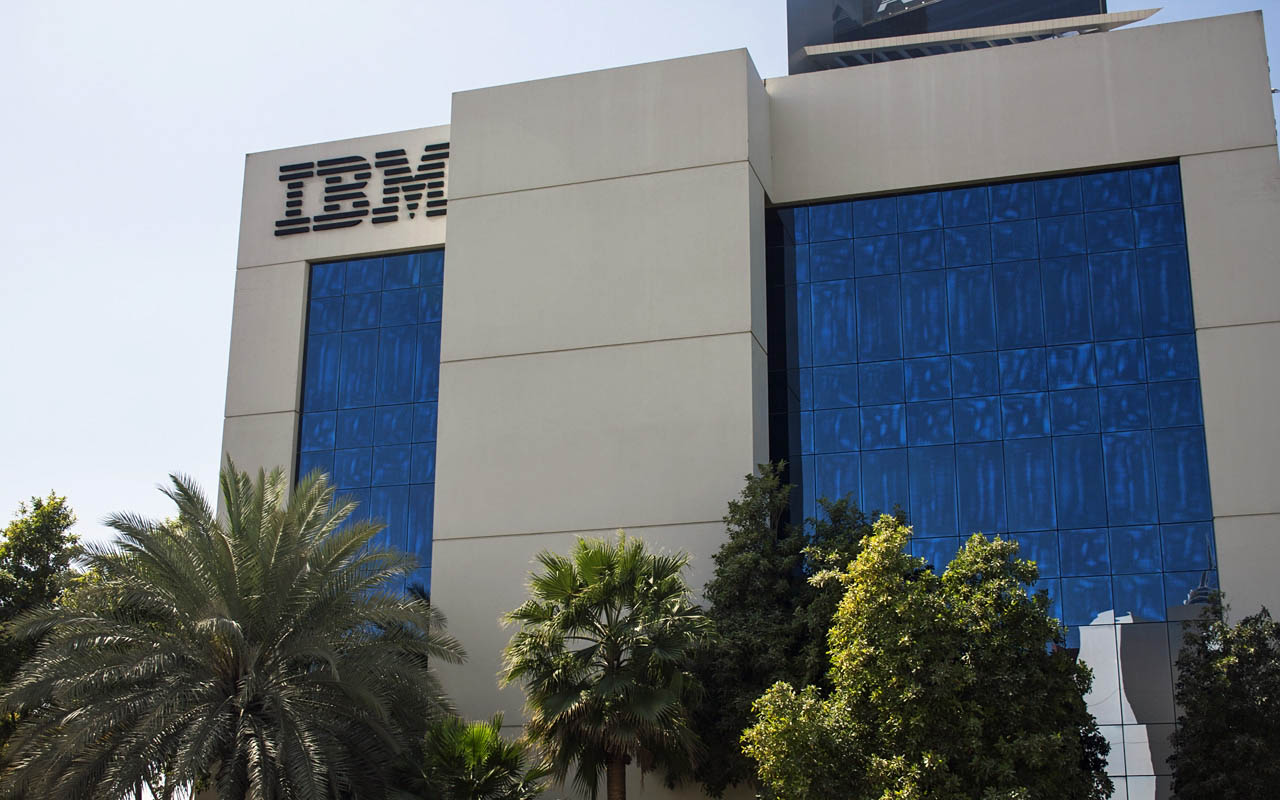
International Business Machines
- Market value: $120.1 billion
- Dividend yield: 4.8%
- International Business Machines (IBM, $135.59) plans to return to top-line growth by expanding in higher valued-added businesses, led by its Cloud and Cognitive Software and Global Business Services segments.
The company greatly expanded its hybrid cloud presence in July when it closed its $34 billion buyout of Red Hat. Red Hat develops open source software that enables companies to update older software applications and manage their data across both data centers and cloud providers. The acquisition makes IBM more competitive with cloud market rivals such as Microsoft (MSFT) and Amazon.com (AMZN). In addition, its new capabilities may help IBM attract bigger corporate clients that already rely on hybrid cloud strategies to sort, secure and analyze data.
Of course, for now, the top line still is receding. Again. Not long after snapping a 22-quarter streak of revenue declines, IBM began a new slump – one that was extended to five consecutive quarters after IBM's October Q3 report. However, while overall revenues declined by 4% year-over-year, Red Hat sales jumped by 19%, and cloud revenues were 11% better.
Instinet analyst Jeffrey Kvaal wasn't blown away by the overall results, but was happy about where IBM did show strength. "While we would prefer broader outperformance, if given the choice, we will take the one with the higher multiple (Red Hat)." Wedbush analyst Moshe Katri still is looking for the switch to flip. "The bottom line, IBM's massive $34 billion acquisition of Red Had (has) yet to provide a positive catalyst/trigger for IBM's overall top line growth."
The dividend remains a strong point, however. IBM has paid investors on a regular basis since 1916, and its 24-year streak of dividend growth puts it a year away from Dividend Aristocracy. Moreover, its payout ratio of 74%, while not leaving a ton of room for improvement, is plenty of cushion to consider the dividend safe. And at a yield of almost 5%, IBM is among the most generous high-yield dividend stocks in the Dow.
So while IBM's growth prospects are muddy, it can provide plenty of income while investors wait for a spark.
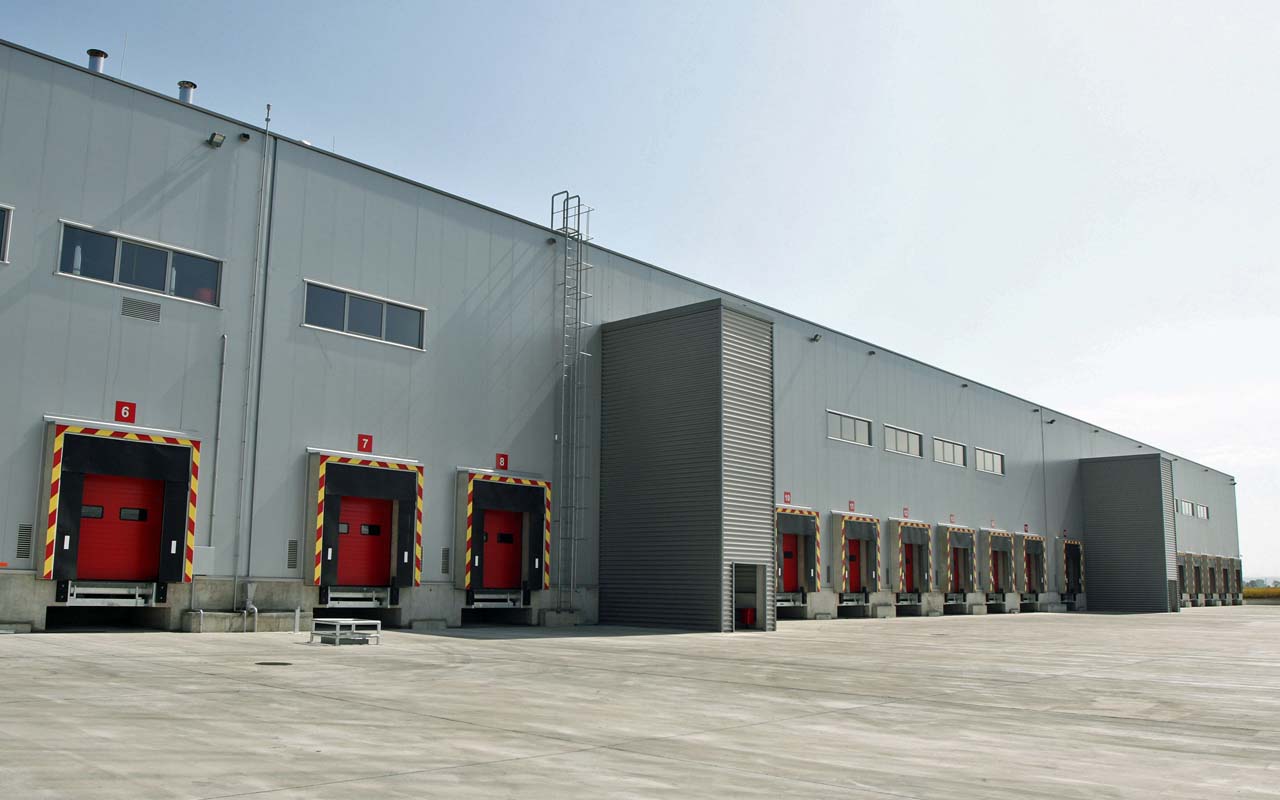
W.P. Carey
- Market value: $14.5 billion
- Dividend yield: 4.9%
- W.P. Carey (WPC, $83.91) is a net-lease commercial real estate investment trust (REIT) that invests in single-tenant properties, such as U-Haul self-storage facilities, Marriott (MAR) hotels and Hellweg stores in Germany (think Home Depot or Lowe's). The company is diversified both geographically, with 36% of rents generated overseas, and by property types, spanning office, industrial, warehouse and retail.
Rent escalators built into its long-term leases ensure rental income growth that keeps pace with inflation.
At present, W.P. Carey's portfolio consists of roughly 1,200 properties encompassing 137.5 million square feet leased out to more than 320 tenants. The REIT's average lease term is more than a decade, and portfolio occupancy is a high 98.4%, which was 20 basis points better than it was in the previous quarter. (A basis point is one one-hundredth of a percent.)
WPC shares have mostly rolled in 2019, piling up 30% gains, but that was much better before third-quarter earnings clipped its wings. The company's adjusted funds from operations (FFO, an important REIT profitability metric) dropped by 12% year-over-year, though it was still ahead of estimates. But W.P. Carey also lowered the high end of its full-year adjusted FFO. Still, the small analyst community that follows the stock was more encouraged than not. BMO Capital's Jeremy Metz stuck with his Outperform rating and Evercore ISI's Sheila McGrath upgraded the stock from Underperform (equivalent of Sell) to In Line (equivalent of Hold).
W.P. Carey has elevated its annual dividend for 22 years in a row and generally raises payments by a small amount every quarter. The annualized payout growth is fairly glacial, though, coming in at about 2% on average over the past half-decade.
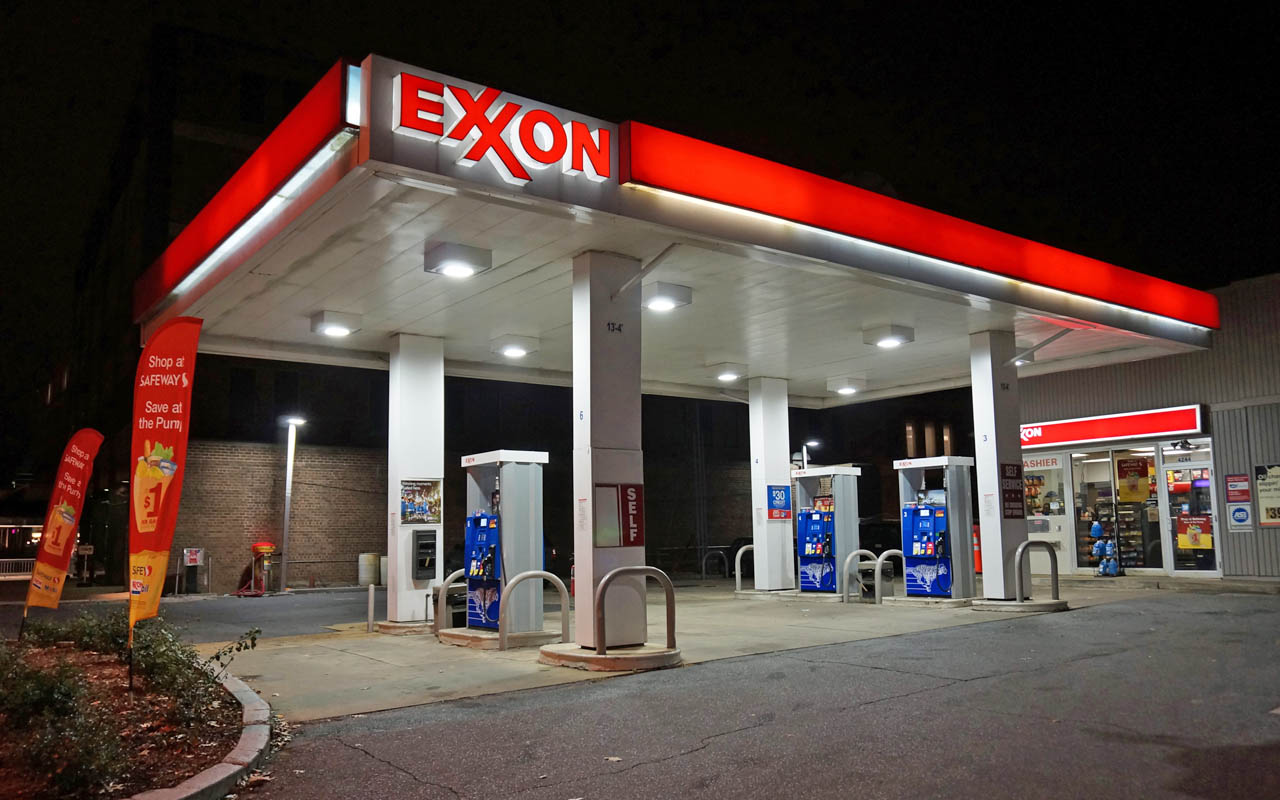
Exxon Mobil
- Market value: $293.5 billion
- Dividend yield: 5.0%
Integrated energy giant Exxon Mobil (XOM, $69.37) is, like Chevron, well-positioned over the long-term in the Permian Basin, with Permian production expected to rise from 274,000 barrels per day presently to 1 million barrels per day by 2024. The company also owns significant offshore discoveries in Guyana and Brazil that are expected to supply continuous strong production gains for years to come.
Despite rising production, however – the Permian Basin shined in Q3, with production jumping 7% – slumping oil prices and higher costs gouged earnings by almost half. That said, Exxon's $65.05 billion in revenues and 75 cents per share in earnings did manage to top analyst estimates.
The company is making progress, however, on its plan to double its cash flows by 2025. "We believe ExxonMobil is poised for a relative recovery after several years of lagging performance," writes BofA Merrill Lynch analyst Doug Leggate, who has a Buy rating on XOM shares. "We continue to believe XOM's strategy of investing counter to the industry cycle is reloading growth opportunities at advantaged costs, creating capacity for ratable dividend growth."
Indeed, despite a cyclical EPS performance caused by energy price swings, Exxon Mobil has been a steady generator of dividends. The company has delivered 37 consecutive years of dividend gains, which includes a 6.1% bump in April – a little ahead of its five-year pace of about 4.8% annually.
Many analysts are on the sidelines, with Hold-equivalent calls. For instance, Barclays analyst Jeanine Wai wrote in August that "investors are more likely to gravitate toward energy companies that currently have strong free cash flow generation, as opposed to potential free cash flow in the future." But the future should be fine for buy-and-holders, as she says the high-yield dividend stock's "counter-cyclical approach will eventually pay off for shareholders."

Universal Corp.
- Market value: $1.3 billion
- Dividend yield: 5.8%
- Universal Corp. (UVV, $52.76) is the world's leading supplier of leaf tobacco, serving customers in more than 30 countries. The company doesn't actually produce cigarettes or other consumer tobacco products – it acts as an intermediary between farmers and product manufacturers such as Altria Group (MO), Philip Morris International (PM) and British American Tobacco (BTI).
Demand for tobacco products is gradually declining, so Universal is exploring growth opportunities in adjacent industries while using its robust cash flow to increase dividends and reduce debt. Universal plans to invest in non-commodity agricultural products that can leverage its farming expertise and worldwide logistics network. But cannabis, for now, is out of the conversation, with the company citing regulatory uncertainties.
Universal expects non-tobacco businesses to represent 10% to 20% of its revenues within five years. That initiative should provide assurance to income investors looking to stick around UVV for the long haul.
This year's results have been impacted by a plethora of issues: declining demand, trade tariffs that reduced tobacco sales to Chinese customers and larger crops. But broadly speaking, the company's revenues and profits are stable, albeit in very slight decline.
Universal has nonetheless kept the pedal down on its quarterly dividend, improving it for 49 consecutive years – were it in the S&P 500, one more payout hike would put it among the Dividend Kings. The dividend has grown by a healthy 8.3% compounded average annual rate over the past half-decade, though most of that came with a massive jump from 55 cents to 75 cents per share in 2018.

Tanger Factory Outlet Centers
- Market value: $1.5 billion
- Dividend yield: 8.9%
The largest payout among these high-yield dividend stocks belongs to Tanger Factory Outlet Centers (SKT, $15.88), a retail REIT that owns 39 factory outlet centers across 20 U.S. states and Canada. Its centers are leased to more than 500 brand-name companies, which together operate more than 2,800 stores. The company's tenants include the likes of Ralph Lauren (RL), Nike (NKE), Brooks Brothers and Le Creuset. More than 181 million shoppers visit a Tanger outlet center each year.
SKT hasn't been immune to the woes in rick-and-mortar retail. The stock has lost more than half its value over the past three years. While its funds from operations have held up for most of that time, they have pulled back in 2019 after it sold off some assets and suffered from the bankruptcy of tenant Dressbarn.
That said, Dressbarn stores accounted for only 1.7% of the REIT's annualized rents, and its store sales were only $140 per square foot – roughly a third the average for its other tenants. Replacing Dressbarn with another, better tenant might end up being a longer-term gain for Tanger.
The bright spot for Tanger is that its occupancy remains high, in the 95%-96%, which clobbers most other mall-related REITs. And sales per square foot for the 12 months ended Sept. 30 were $395, up from $383 from the prior-year period. While Tanger's adjusted FFO will decline during the current fiscal year, the company did raise its full-year guidance in its most recent quarterly report.
Part of Tanger's success comes from its TangerClub rewards program, which provides frequent customers with special offers, VIP parking and other perks. Members pay to join the program, which has attracted 1.4 million members and is growing 12% a year. These members average a trip to Tanger outlet centers every month and spend 63% more than non-club members.
As far as the dividend goes? The payout has increased every single year since SKT went public in May 1993, and at a decent clip of 8% annually over the past five years. 2019's bump-up was lean, however, at around 2%.
Profit and prosper with the best of Kiplinger's advice on investing, taxes, retirement, personal finance and much more. Delivered daily. Enter your email in the box and click Sign Me Up.

Lisa currently serves as an equity research analyst for Singular Research covering small-cap healthcare, medical device and broadcast media stocks.
-
 Your Retirement Isn't Set in Stone, But It Can Be a Work of Art
Your Retirement Isn't Set in Stone, But It Can Be a Work of ArtSetting and forgetting your retirement plan will make it hard to cope with life's challenges. Instead, consider redrawing and refining your plan as you go.
-
 The Bear Market Protocol: 3 Strategies to Consider in a Down Market
The Bear Market Protocol: 3 Strategies to Consider in a Down MarketThe Bear Market Protocol: 3 Strategies for a Down Market From buying the dip to strategic Roth conversions, there are several ways to use a bear market to your advantage — once you get over the fear factor.
-
 Dow Adds 1,206 Points to Top 50,000: Stock Market Today
Dow Adds 1,206 Points to Top 50,000: Stock Market TodayThe S&P 500 and Nasdaq also had strong finishes to a volatile week, with beaten-down tech stocks outperforming.
-
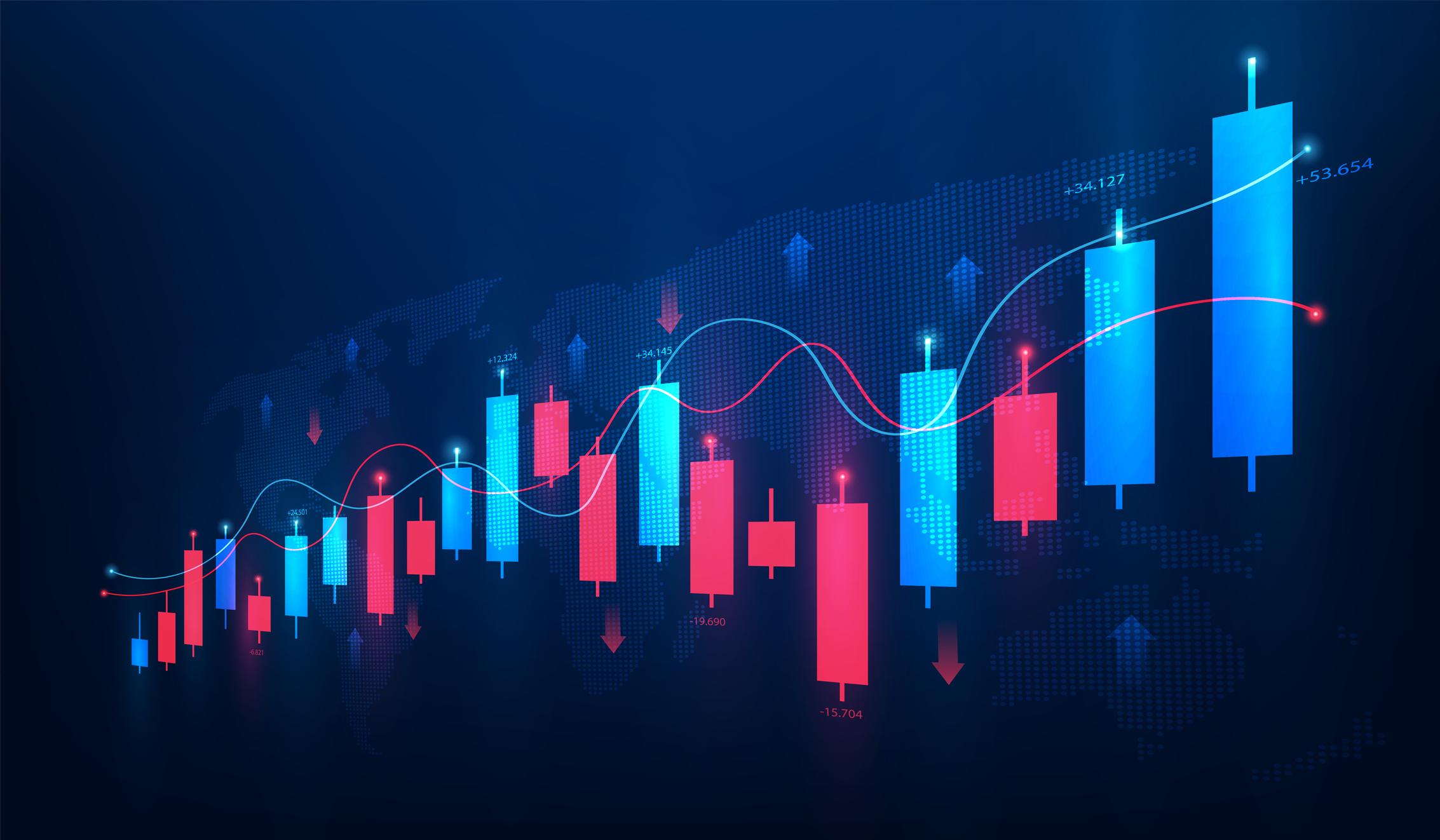 Dow, S&P 500 Rise to New Closing Highs: Stock Market Today
Dow, S&P 500 Rise to New Closing Highs: Stock Market TodayWill President Donald Trump match his Monroe Doctrine gambit with a new Marshall Plan for Venezuela?
-
 'Donroe Doctrine' Pumps Dow 594 Points: Stock Market Today
'Donroe Doctrine' Pumps Dow 594 Points: Stock Market TodayThe S&P 500 rallied but failed to turn the "Santa Claus Rally" indicator positive for 2026.
-
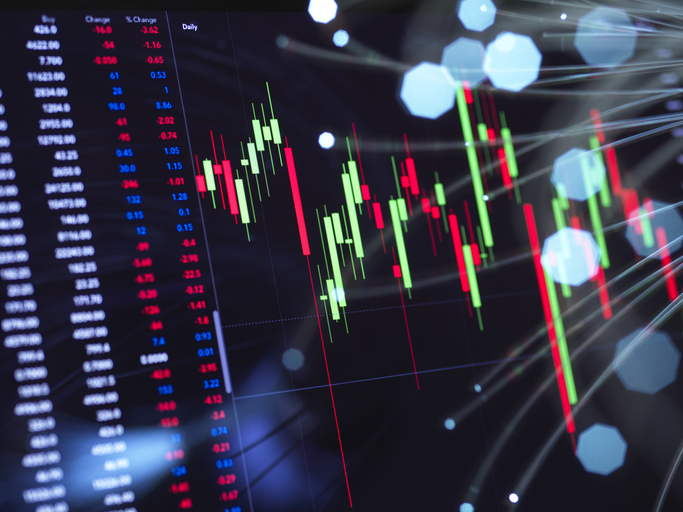 Stocks Chop as the Unemployment Rate Jumps: Stock Market Today
Stocks Chop as the Unemployment Rate Jumps: Stock Market TodayNovember job growth was stronger than expected, but sharp losses in October and a rising unemployment rate are worrying market participants.
-
 What Fed Rate Cuts Mean For Fixed-Income Investors
What Fed Rate Cuts Mean For Fixed-Income InvestorsThe Fed's rate-cutting campaign has the fixed-income market set for an encore of Q4 2024.
-
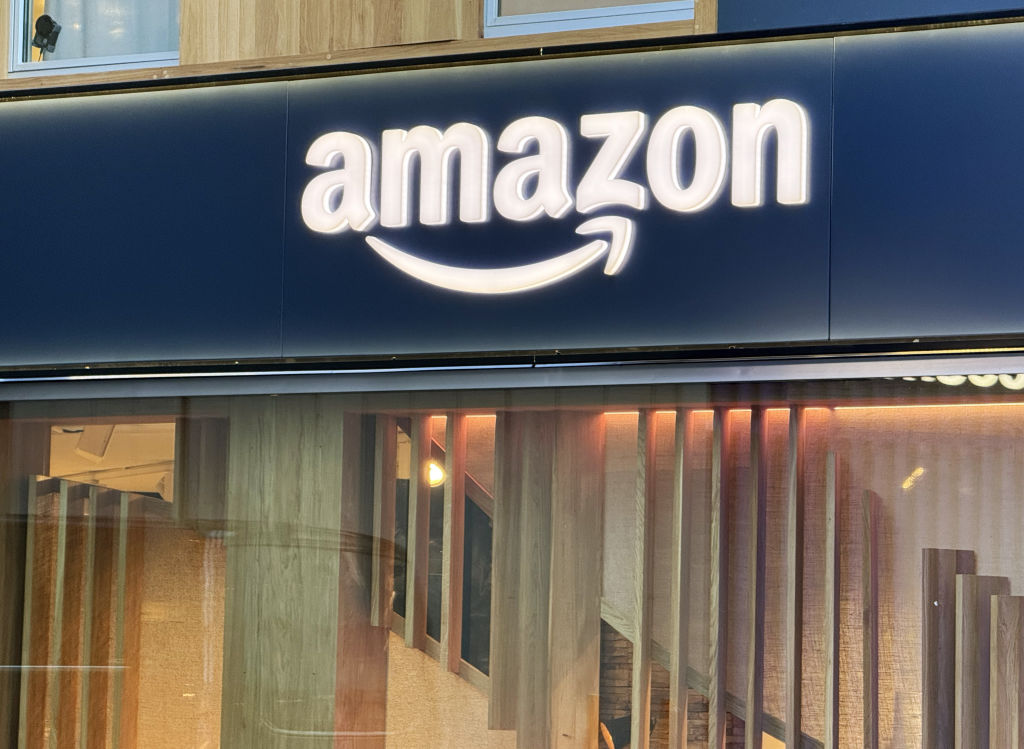 Stocks Close Out Strong Month With Solid Amazon Earnings: Stock Market Today
Stocks Close Out Strong Month With Solid Amazon Earnings: Stock Market TodayAmazon lifted its spending forecast as its artificial intelligence (AI) initiatives create "a massive opportunity."
-
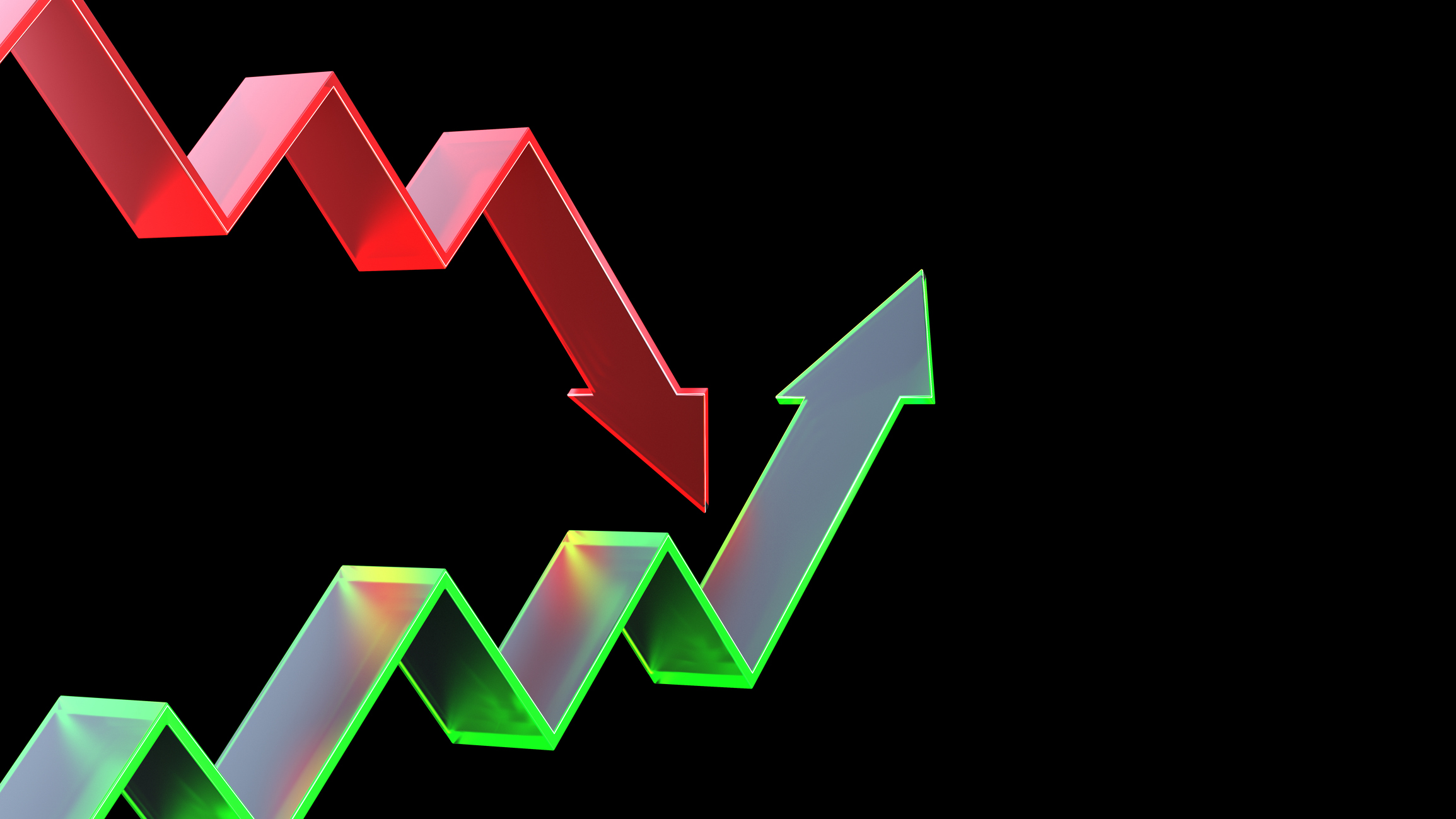 Stocks Close September on a High Note: Stock Market Today
Stocks Close September on a High Note: Stock Market TodayA little bit of late risk-on behavior was enough to lift stocks into the green on the last day of September.
-
 How to Invest for Rising Data Integrity Risk
How to Invest for Rising Data Integrity RiskAmid a broad assault on venerable institutions, President Trump has targeted agencies responsible for data critical to markets. How should investors respond?
-
 The Most Tax-Friendly States for Investing in 2025 (Hint: There Are Two)
The Most Tax-Friendly States for Investing in 2025 (Hint: There Are Two)State Taxes Living in one of these places could lower your 2025 investment taxes — especially if you invest in real estate.
